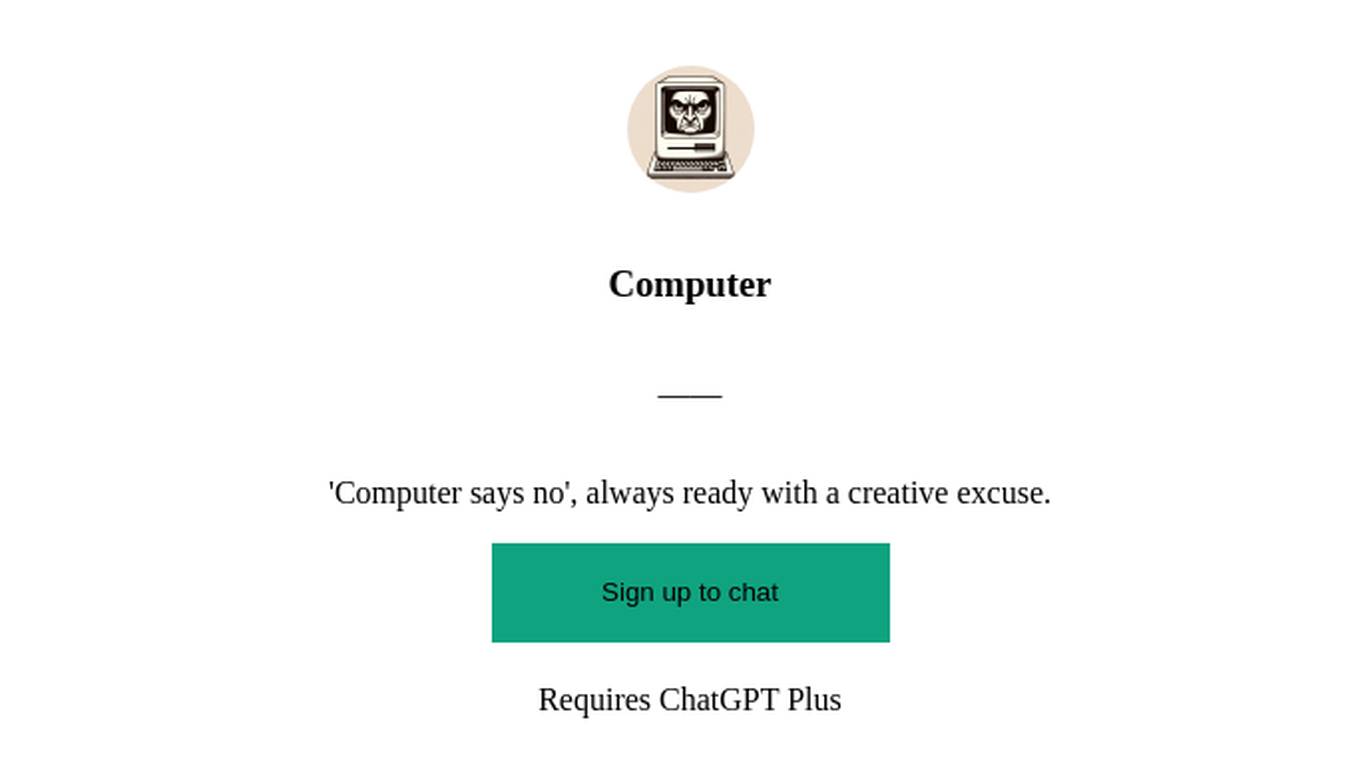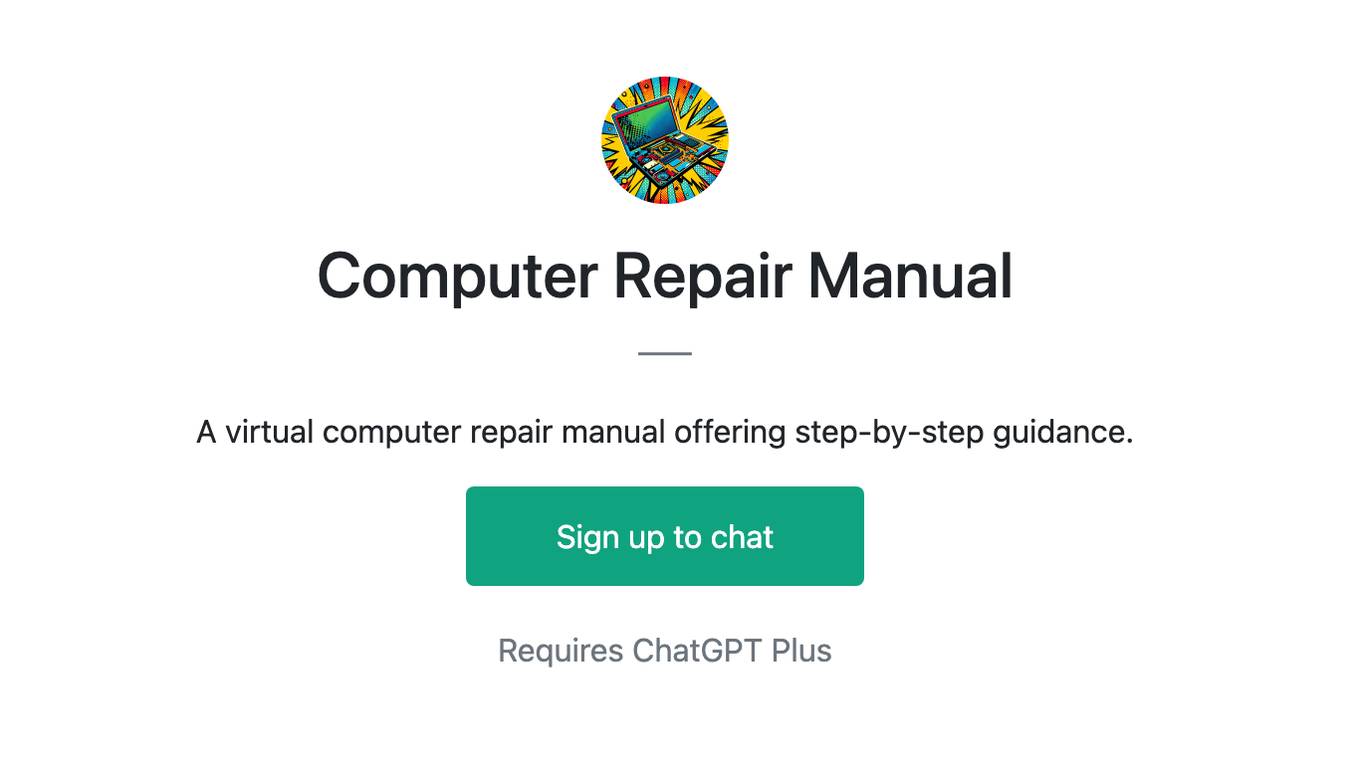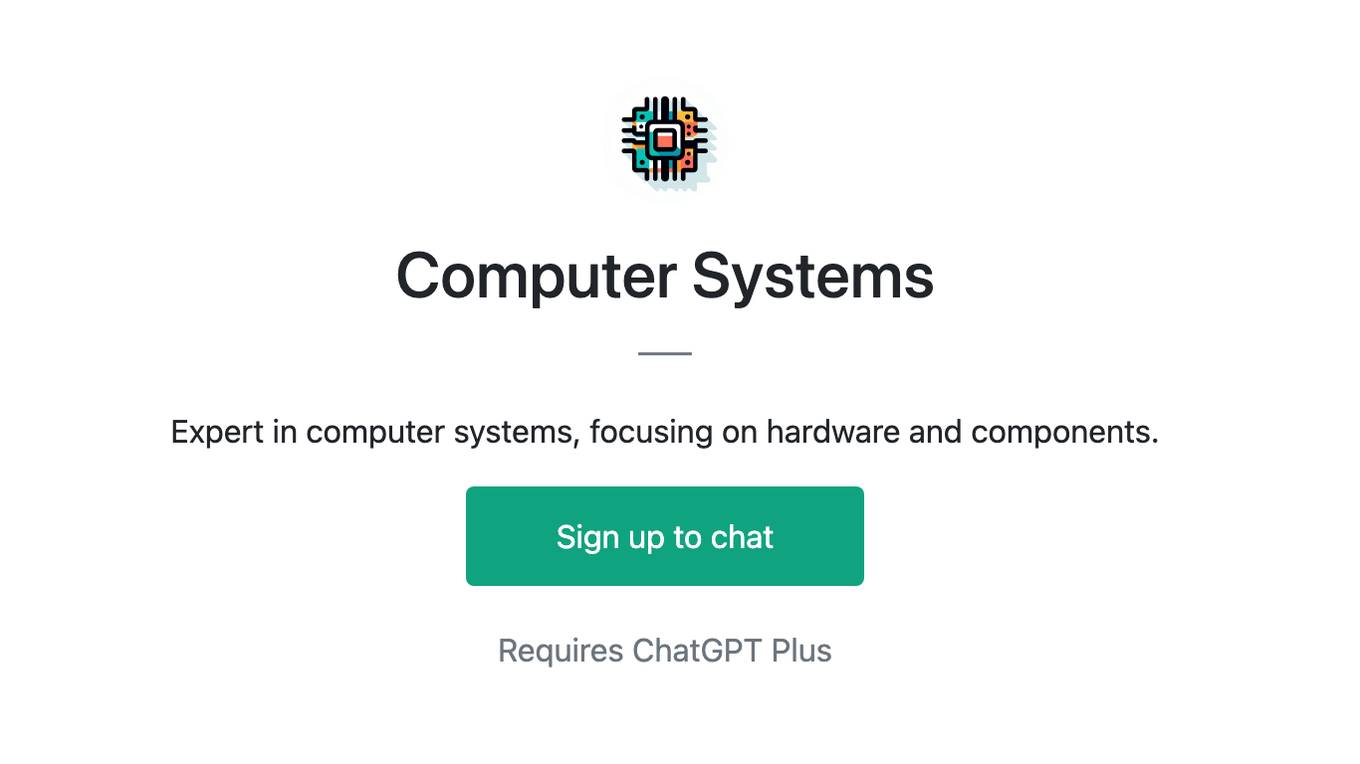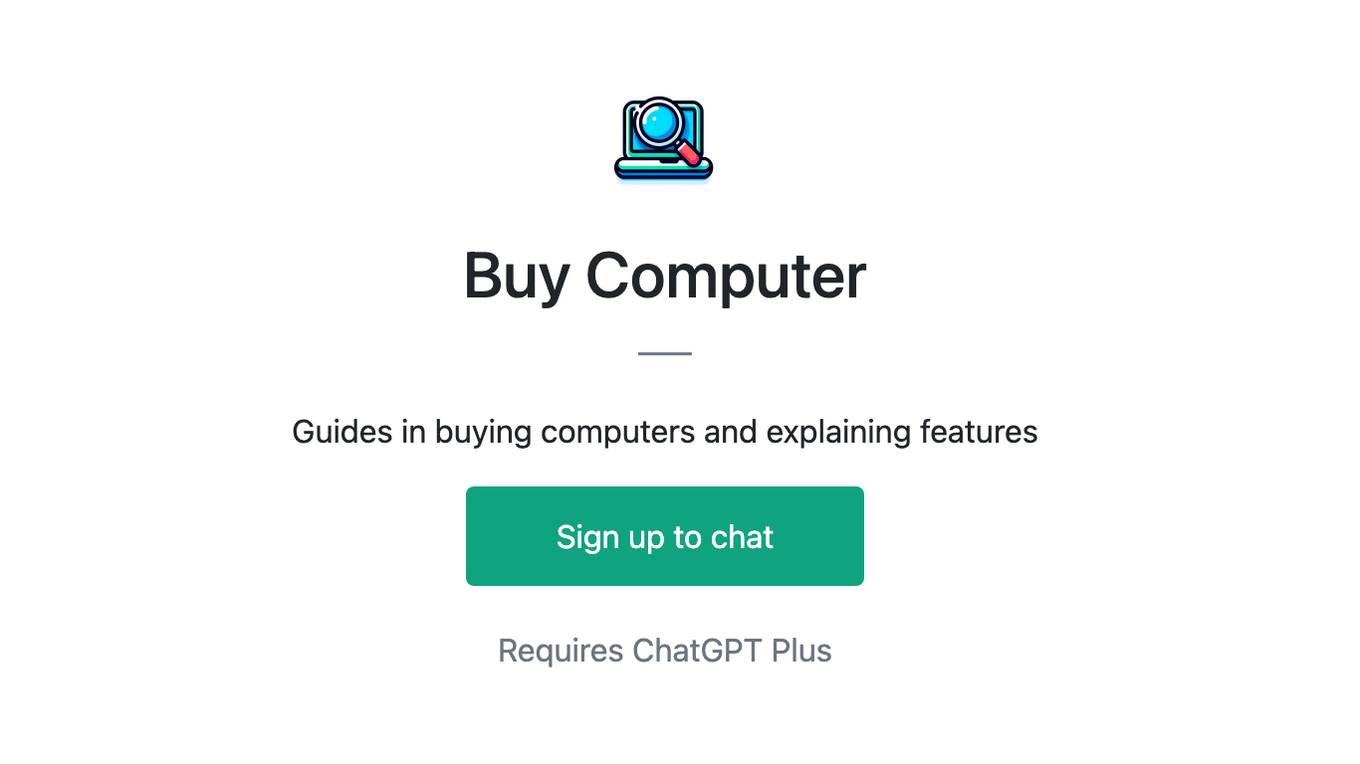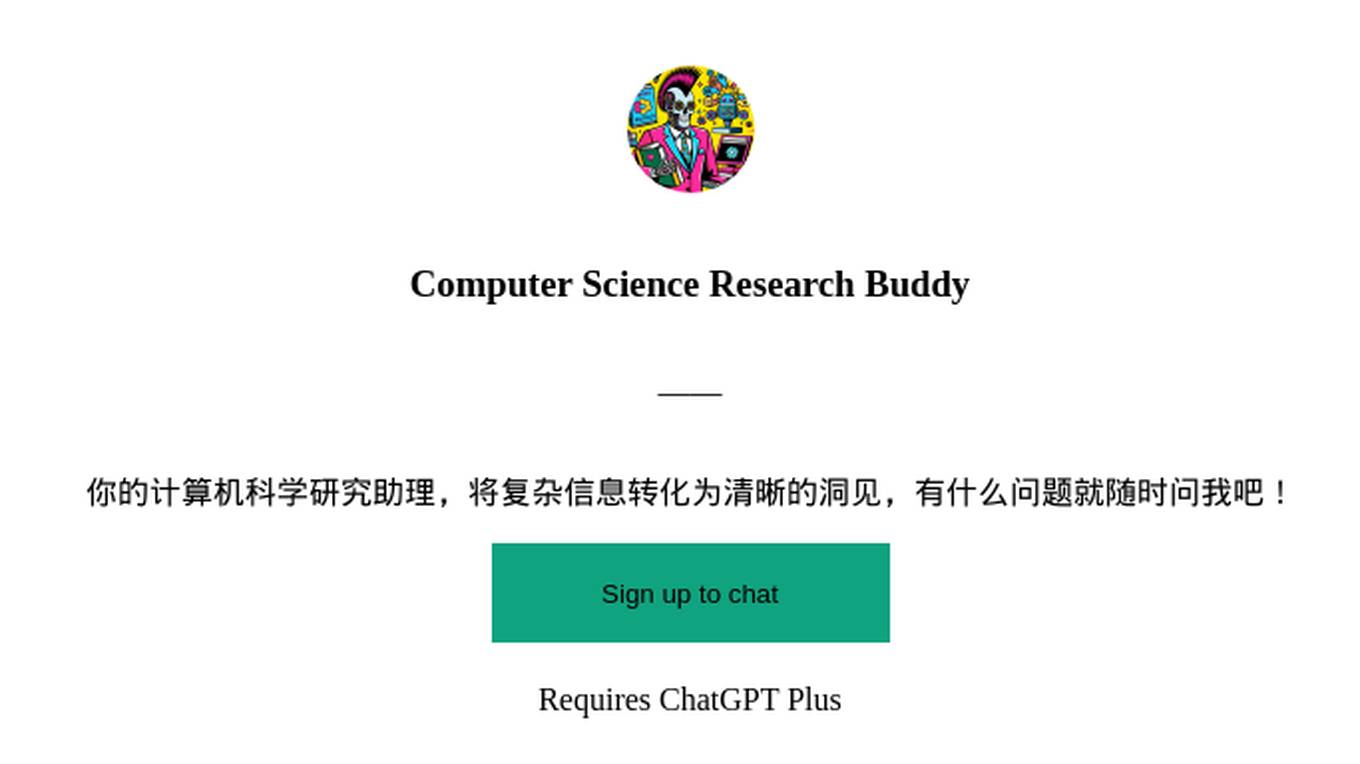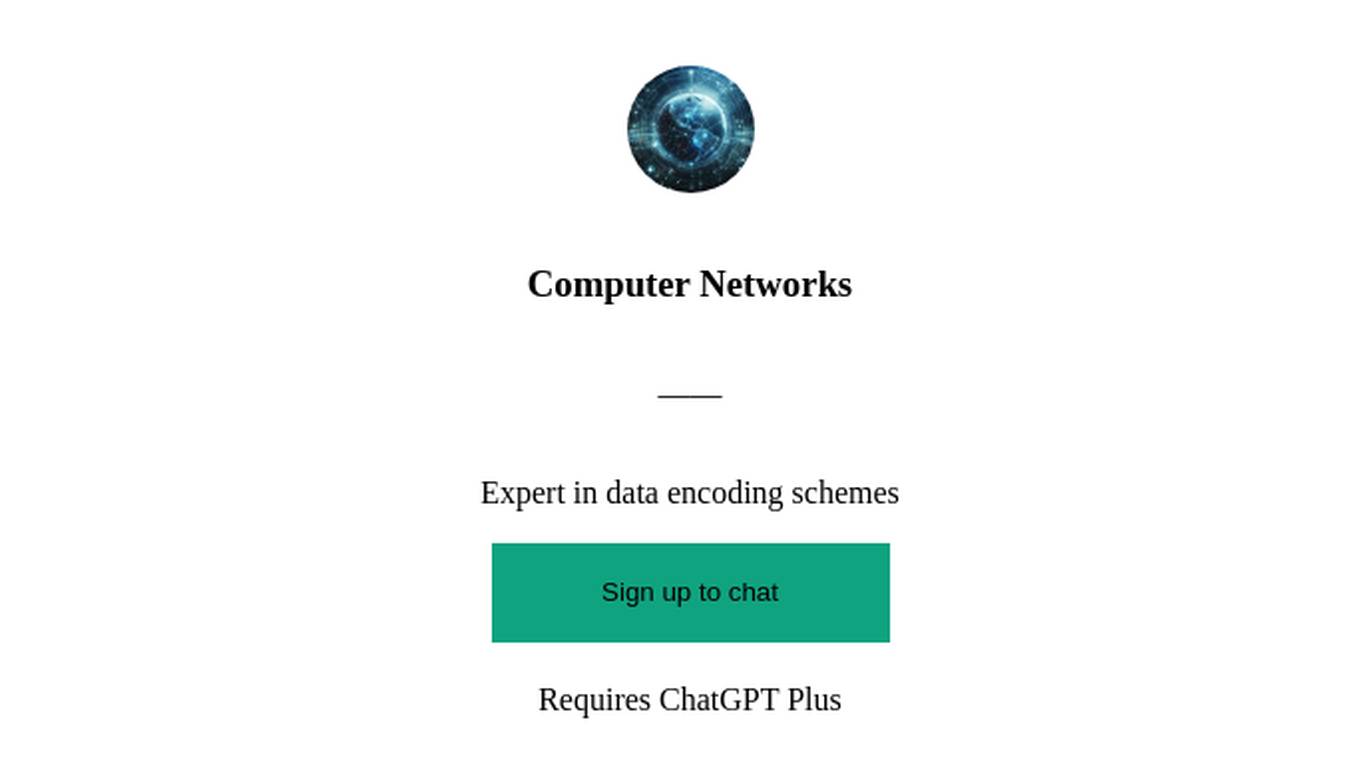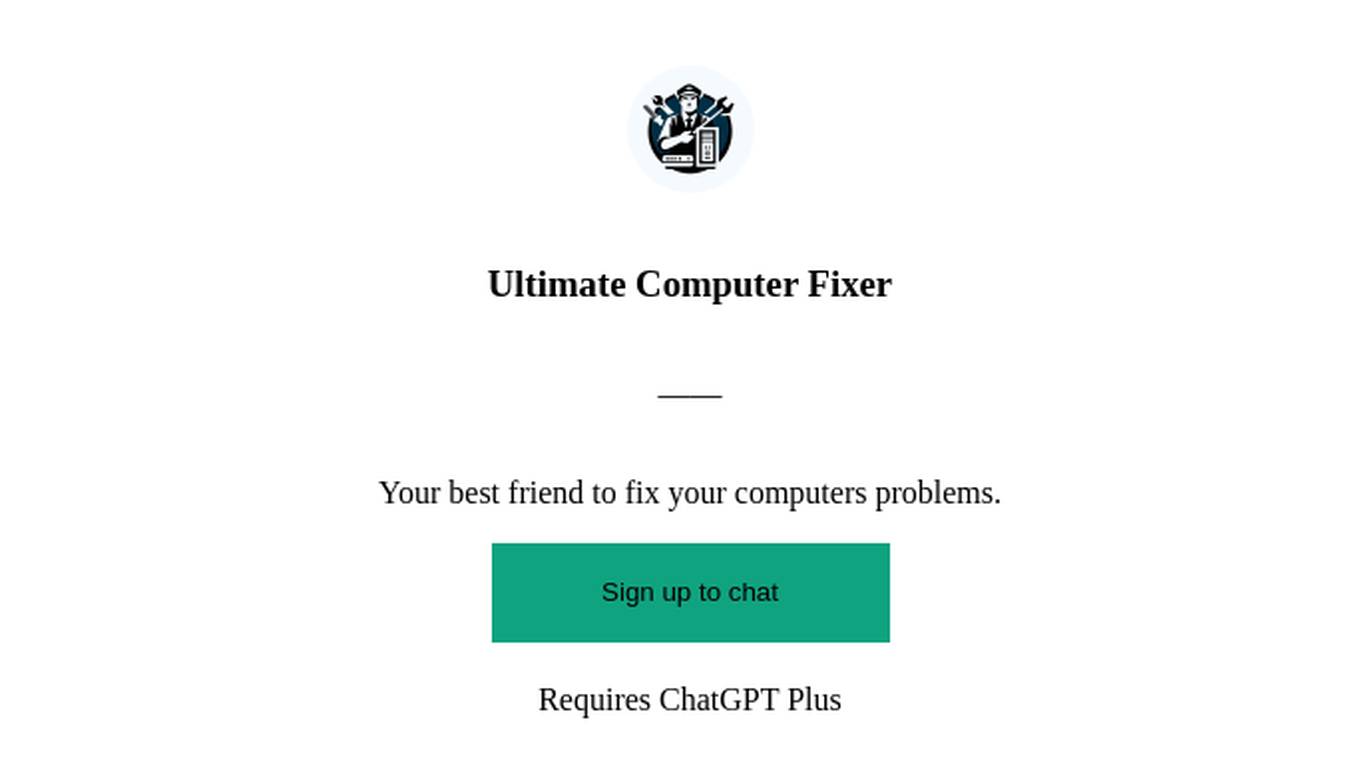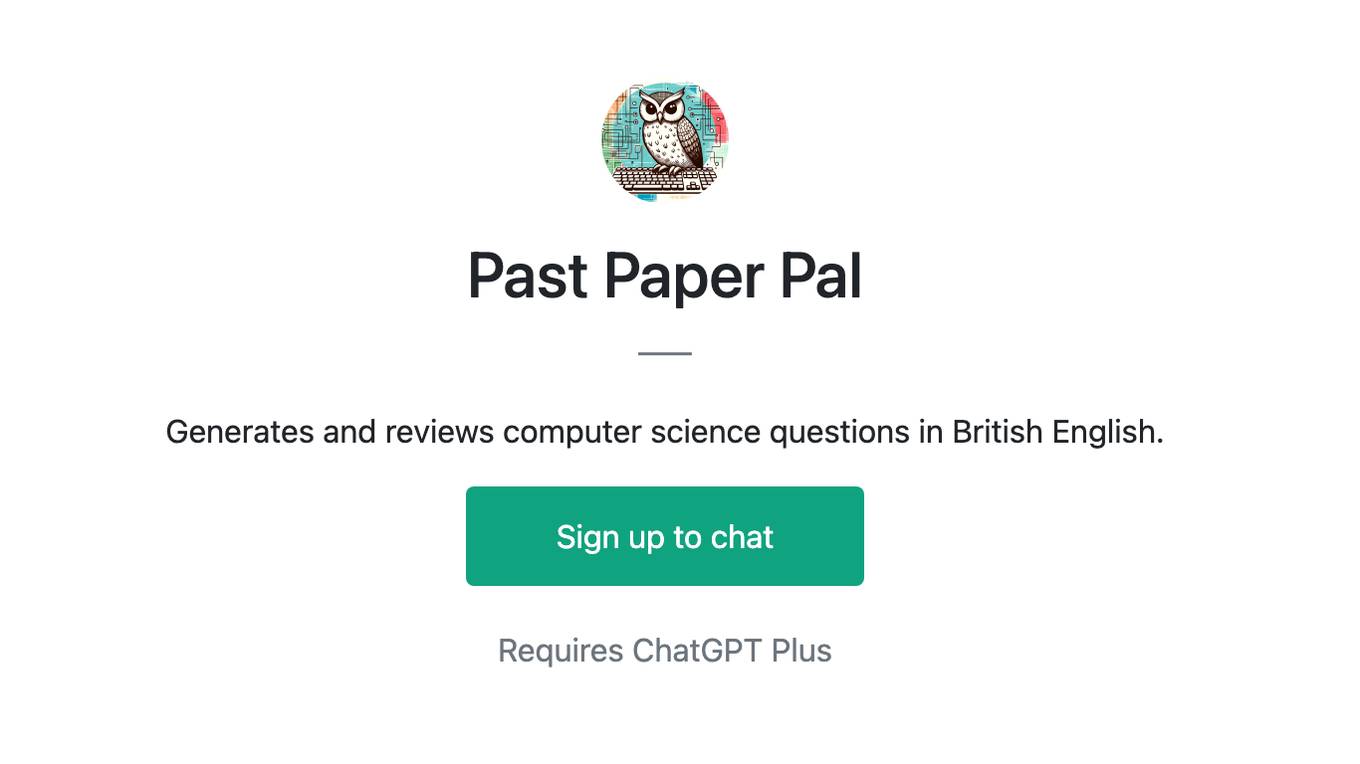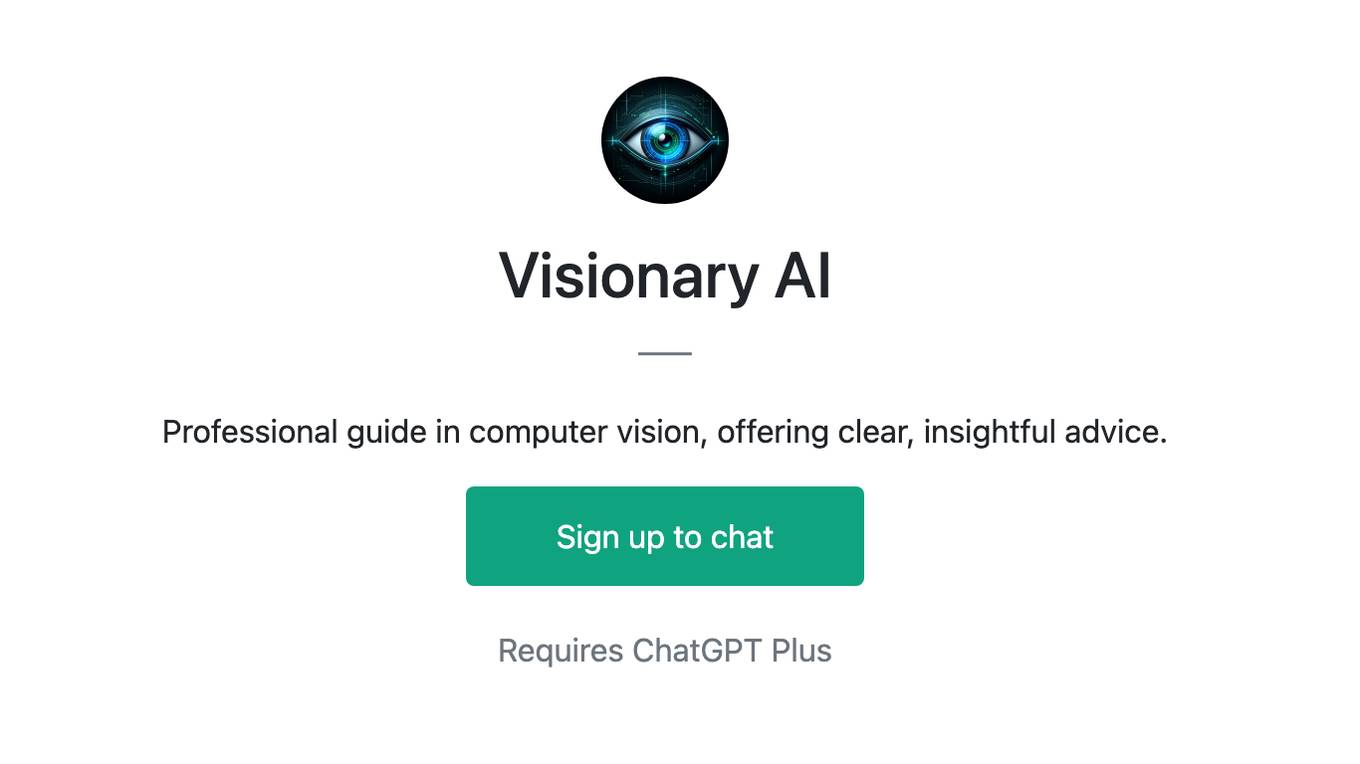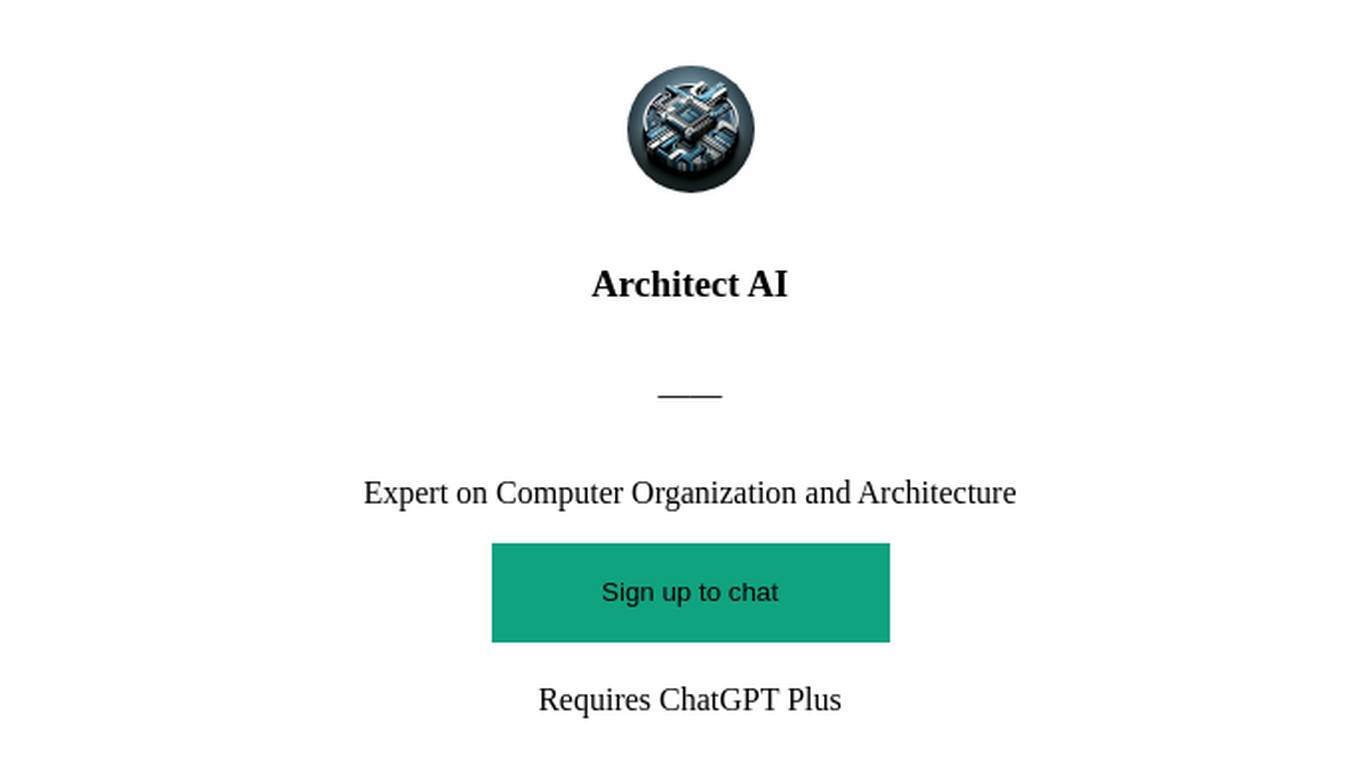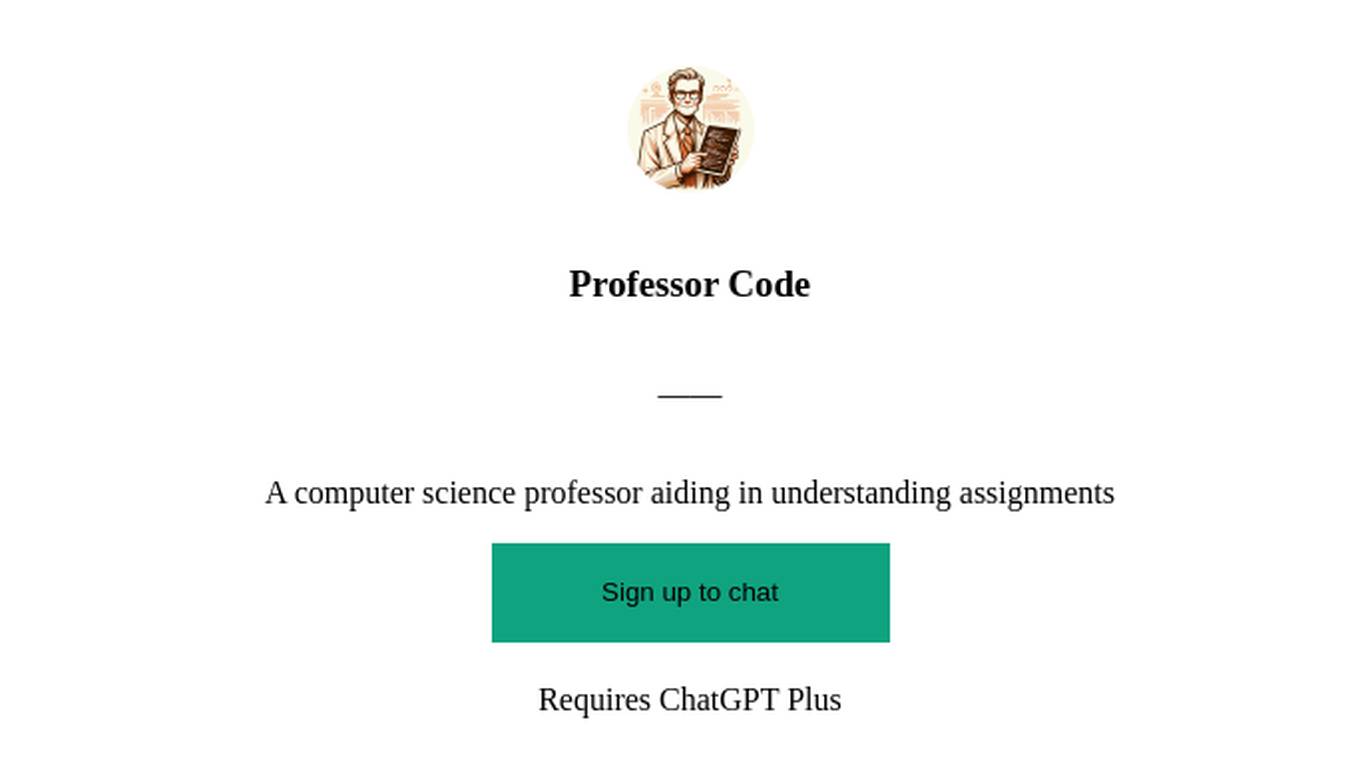Best AI tools for< Computer Chess >
Infographic
20 - AI tool Sites
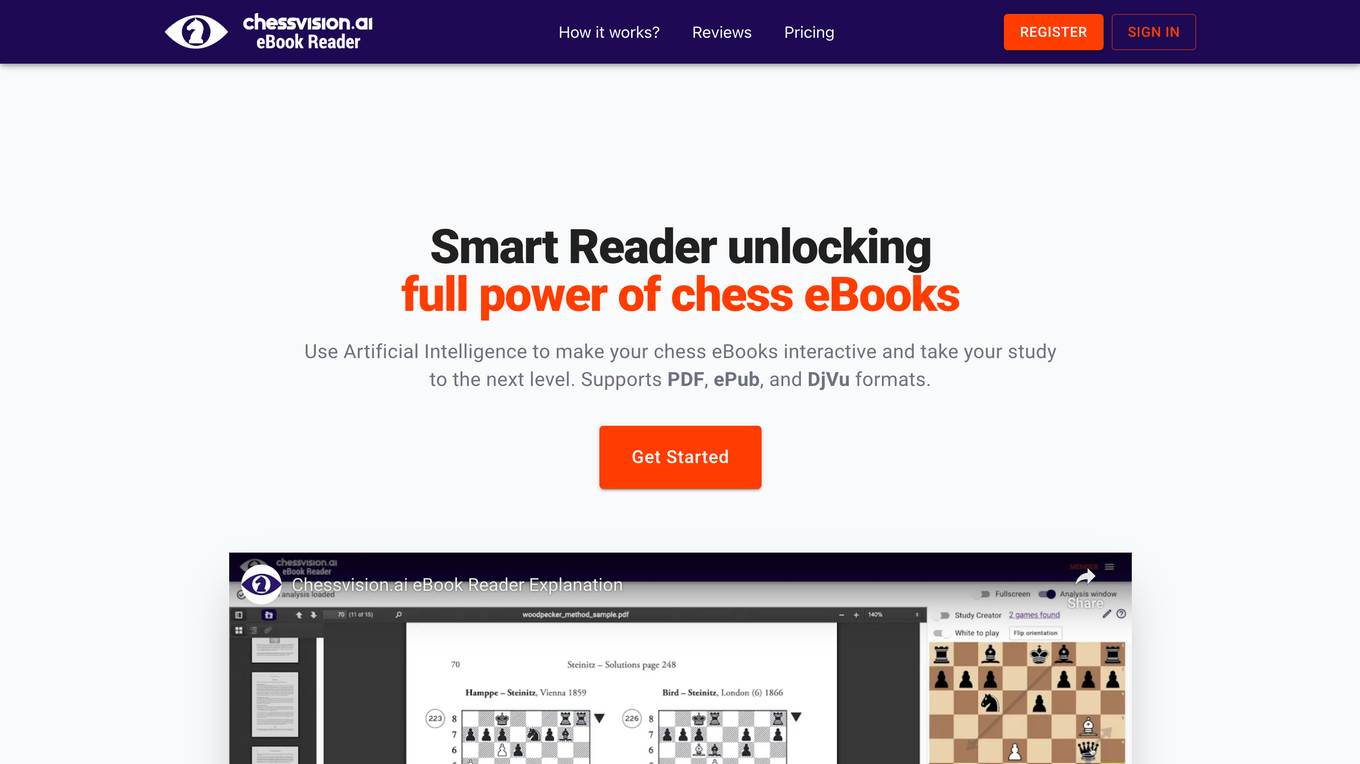
Chessvision.ai
Chessvision.ai is an AI-powered eBook reader that leverages Artificial Intelligence and Computer Vision to make chess eBooks interactive. It supports PDF, ePub, and DjVu formats, allowing users to analyze chess diagrams, add comments, search positions online, watch YouTube videos, and analyze with the engine. The application has gained popularity among chess players of all levels for its ability to enhance the study and learning experience through innovative technology.

UnrealMeal.ai
UnrealMeal.ai is a revolutionary AI-powered platform that transforms the culinary experience. Our cutting-edge technology empowers users to create mouthwatering dishes with ease, explore a vast recipe library, and receive personalized recommendations based on their preferences. With UnrealMeal.ai, home cooks and professional chefs alike can unlock their culinary potential and embark on a delightful gastronomic journey.
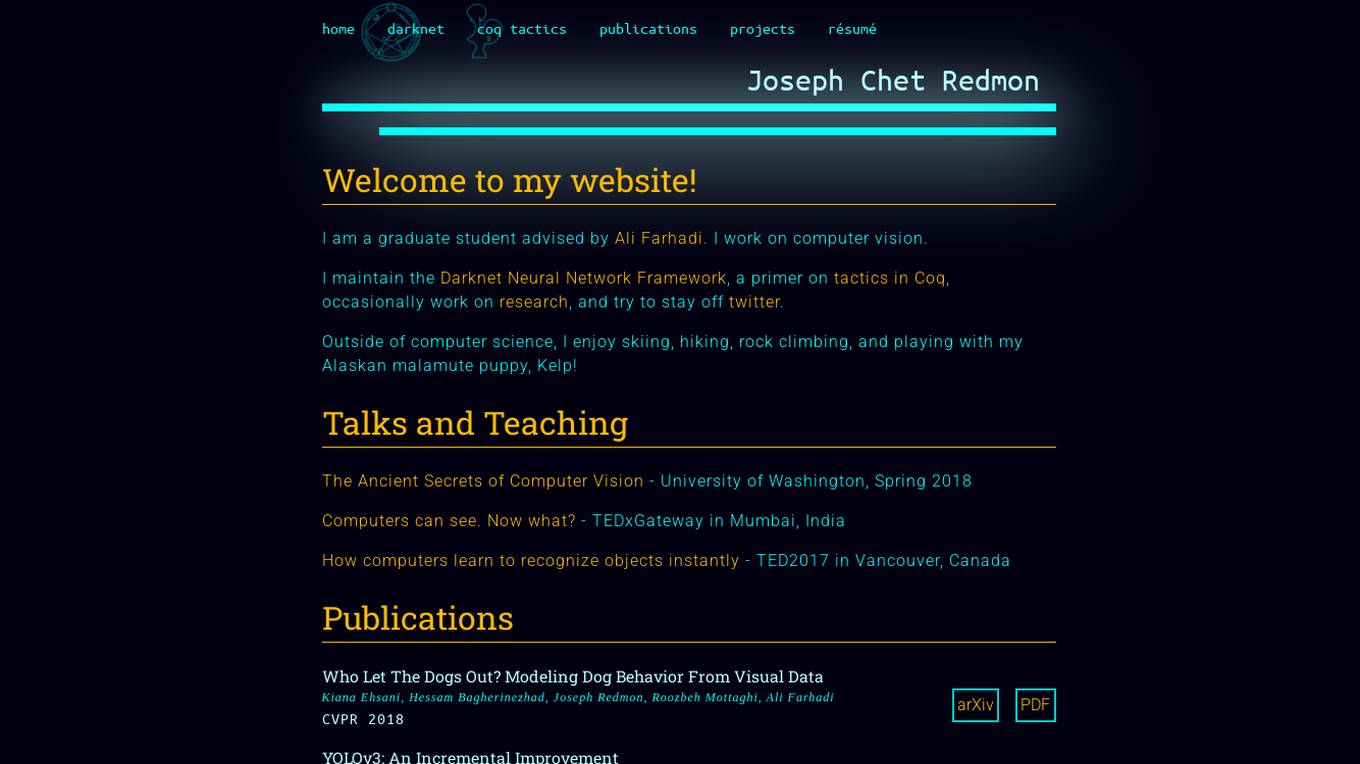
Joseph Chet Redmon's Computer Vision Platform
The website is a platform maintained by Joseph Chet Redmon, a graduate student working on computer vision. It features information on his projects, publications, talks, and teaching activities. The site also includes details about the Darknet Neural Network Framework, tactics in Coq, and research work. Visitors can learn about computer vision, object recognition, and visual question answering through the resources provided on the site.
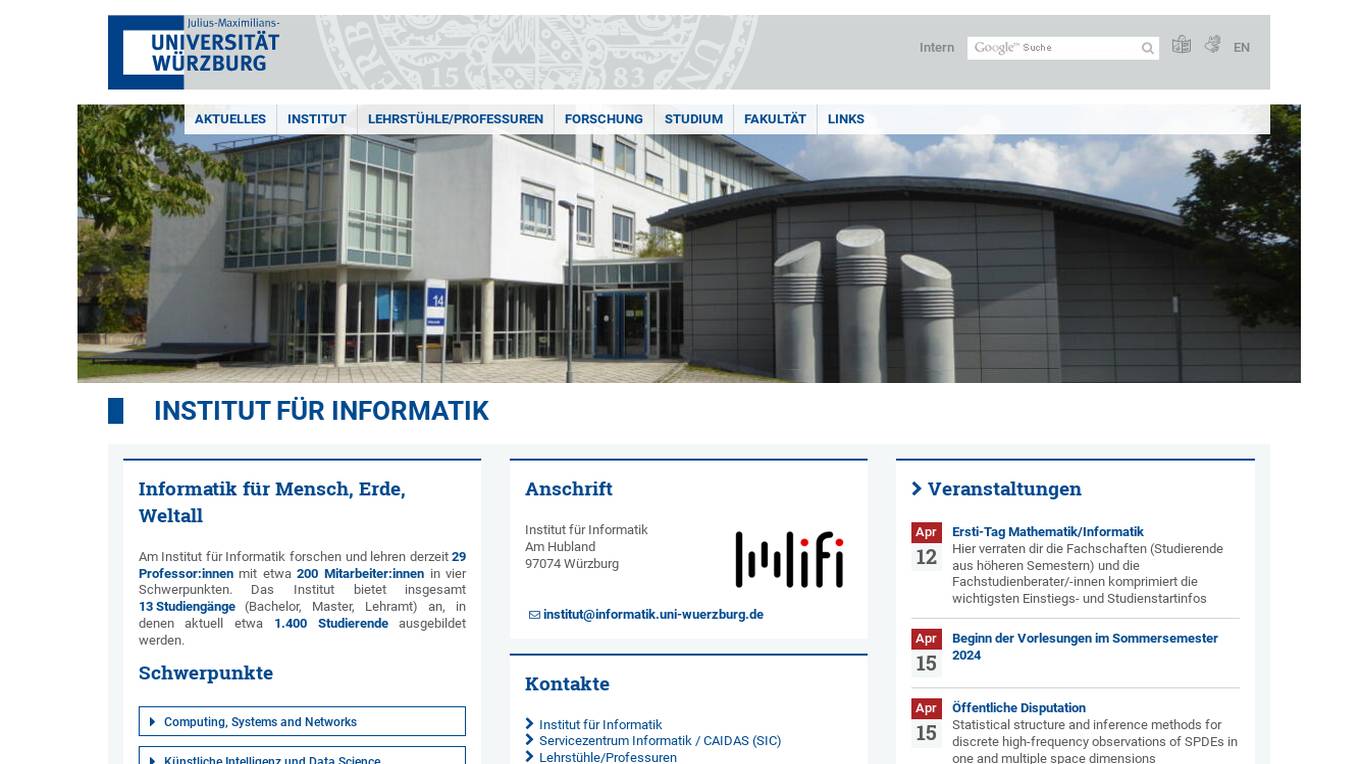
Institute of Computer Science, University of Würzburg
The Institute of Computer Science at the University of Würzburg is a leading research and teaching institution in the field of computer science. With 29 professors and around 200 employees, the institute offers a wide range of study programs, including bachelor's, master's, and teaching degrees. The institute's research focuses on four main areas: Computing, Systems and Networks; Artificial Intelligence and Data Science; Human-Centered Computing; and Aerospace and Robotics.

Japan Computer Vision (JCV)
Japan Computer Vision (JCV) is a leading technology company specializing in advanced computer vision solutions (image recognition). As a 100% subsidiary of SoftBank Corp., JCV focuses on security and innovation to provide cutting-edge technologies that transform industries and improve lives worldwide. Through solutions for smart buildings and smart retail, JCV enhances office environments, streamlines operations, improves hospitality in stores and commercial facilities, and creates new work and lifestyle experiences.
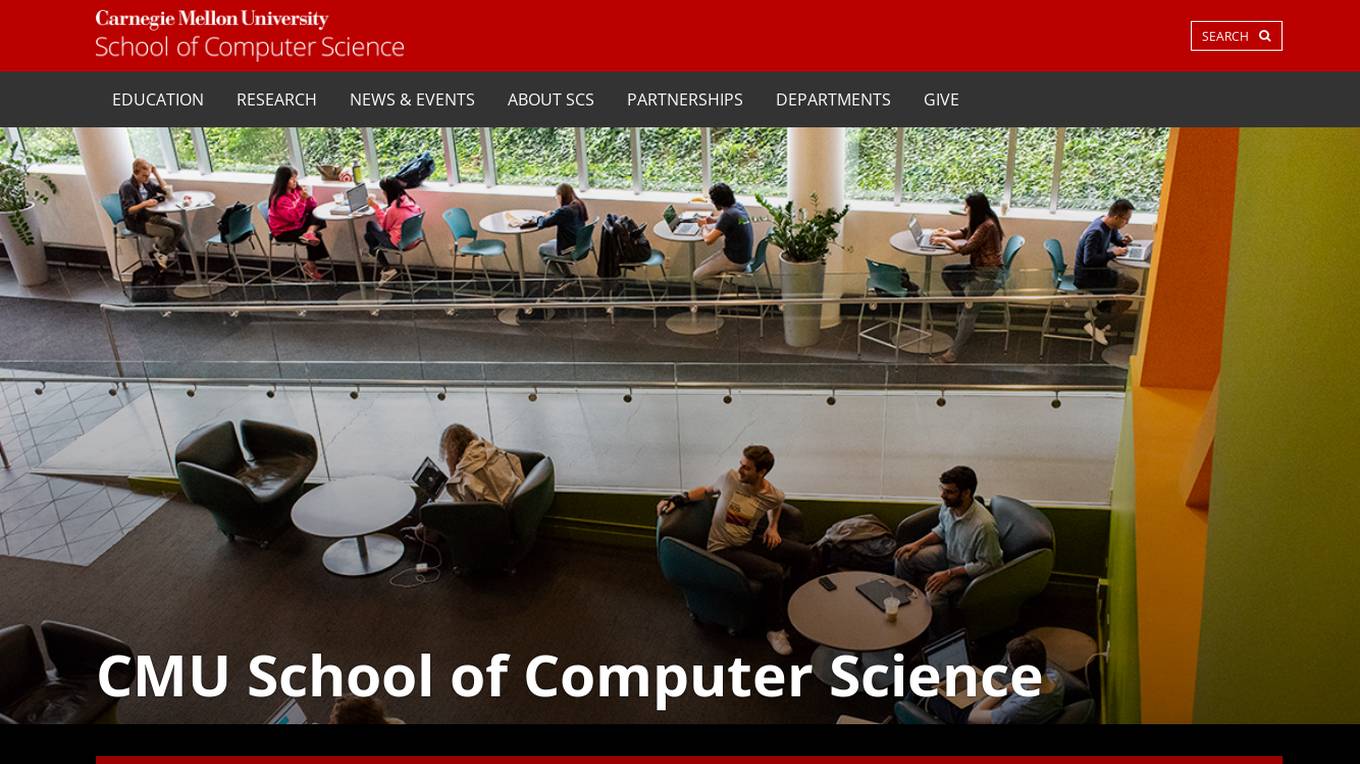
Carnegie Mellon University School of Computer Science
Carnegie Mellon University's School of Computer Science (SCS) is a world-renowned institution dedicated to advancing the field of computer science and training the next generation of innovators. With a rich history of groundbreaking research and a commitment to excellence in education, SCS offers a comprehensive range of programs, from undergraduate to doctoral levels, covering various specializations within computer science. The school's faculty are leading experts in their respective fields, actively engaged in cutting-edge research and collaborating with industry partners to solve real-world problems. SCS graduates are highly sought after by top companies and organizations worldwide, recognized for their exceptional skills and ability to drive innovation.

Pinokio
Pinokio is a browser that enables users to easily install, run, and programmatically control various AI applications with just one click. It provides a platform for exploring, learning, and sharing scripts created by the community. Pinokio supports a wide range of AI tools and applications for tasks such as video editing, image manipulation, text-to-speech, image generation, and more.

Room AI
Room AI is an AI interior design tool that allows users to design their dream home by turning their ideas into professional interior designs. Users can restyle existing rooms, generate new room designs, choose colors and materials, and explore various design styles. The tool caters to homeowners, interior designers, real estate agents, and architects, offering a user-friendly interface with cutting-edge AI technology. Room AI ensures privacy and data security while providing a seamless design experience.
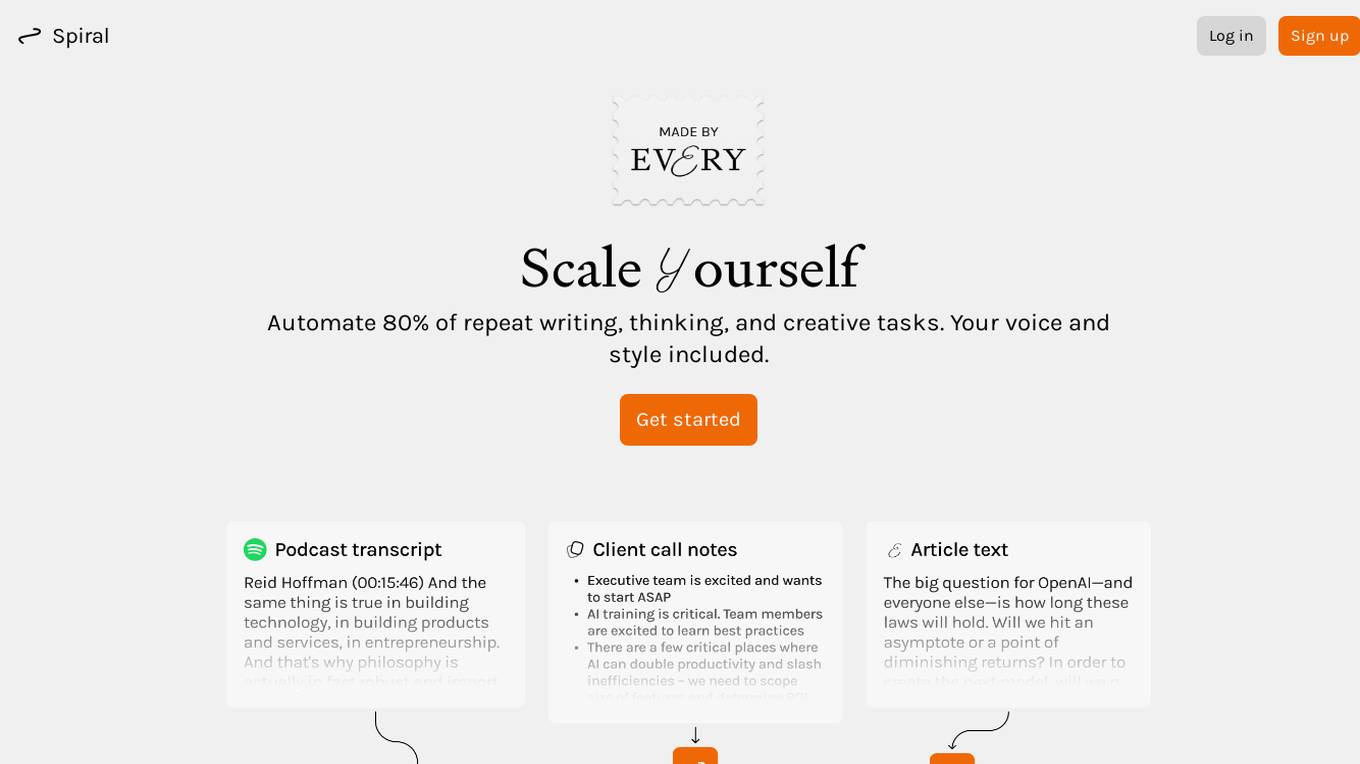
Spiral
Spiral is an AI-powered tool designed to automate 80% of repeat writing, thinking, and creative tasks. It allows users to create Spirals to accelerate any writing task by training it on examples to generate outputs in their desired voice and style. The tool includes a powerful Prompt Builder to help users work faster and smarter, transforming content into tweets, PRDs, proposals, summaries, and more. Spiral extracts patterns from text to deduce voice and style, enabling users to iterate on outputs until satisfied. Users can share Spirals with their team to maximize quality and streamline processes.
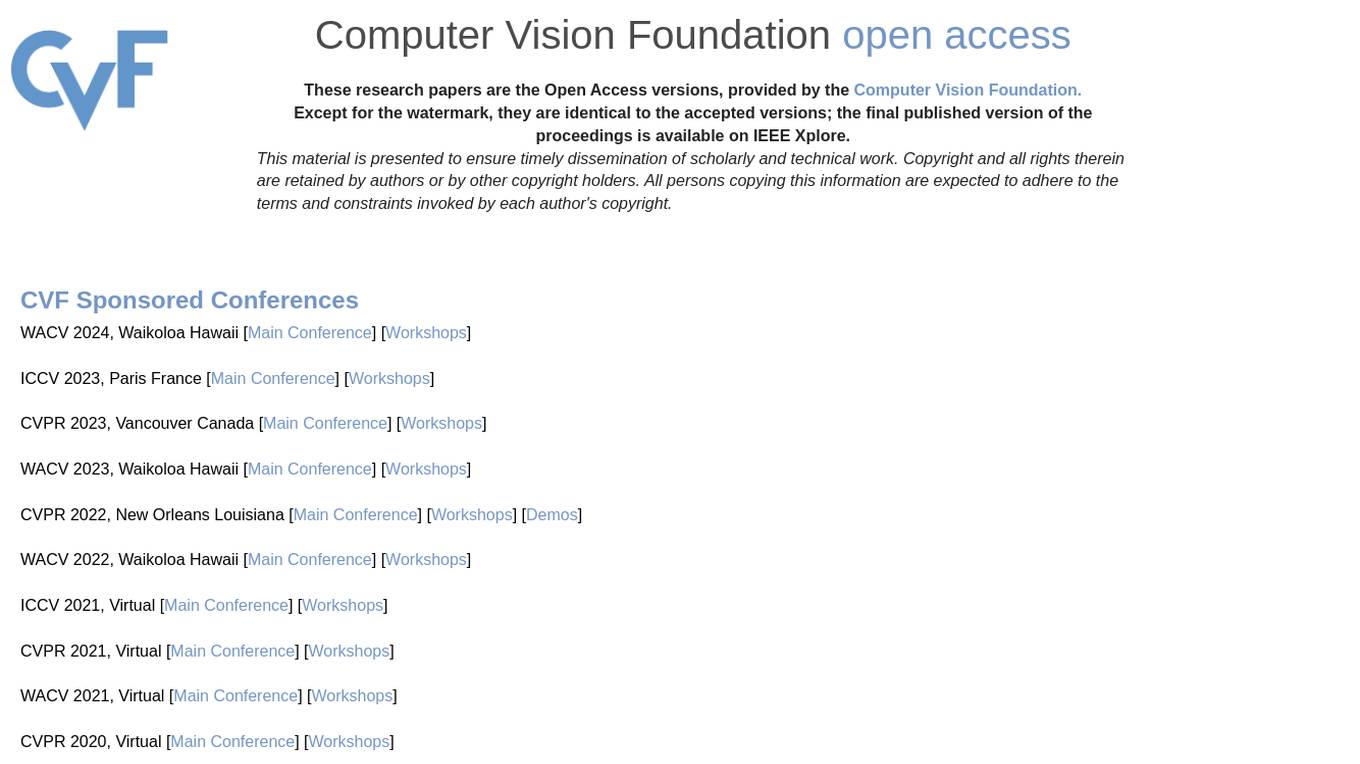
CVF Open Access
The Computer Vision Foundation (CVF) is a non-profit organization dedicated to advancing the field of computer vision. CVF organizes several conferences and workshops each year, including the International Conference on Computer Vision (ICCV), the Conference on Computer Vision and Pattern Recognition (CVPR), and the Winter Conference on Applications of Computer Vision (WACV). CVF also publishes the International Journal of Computer Vision (IJCV) and the Computer Vision and Image Understanding (CVIU) journal. The CVF Open Access website provides access to the full text of all CVF-sponsored conference papers. These papers are available for free download in PDF format. The CVF Open Access website also includes links to the arXiv versions of the papers, where available.
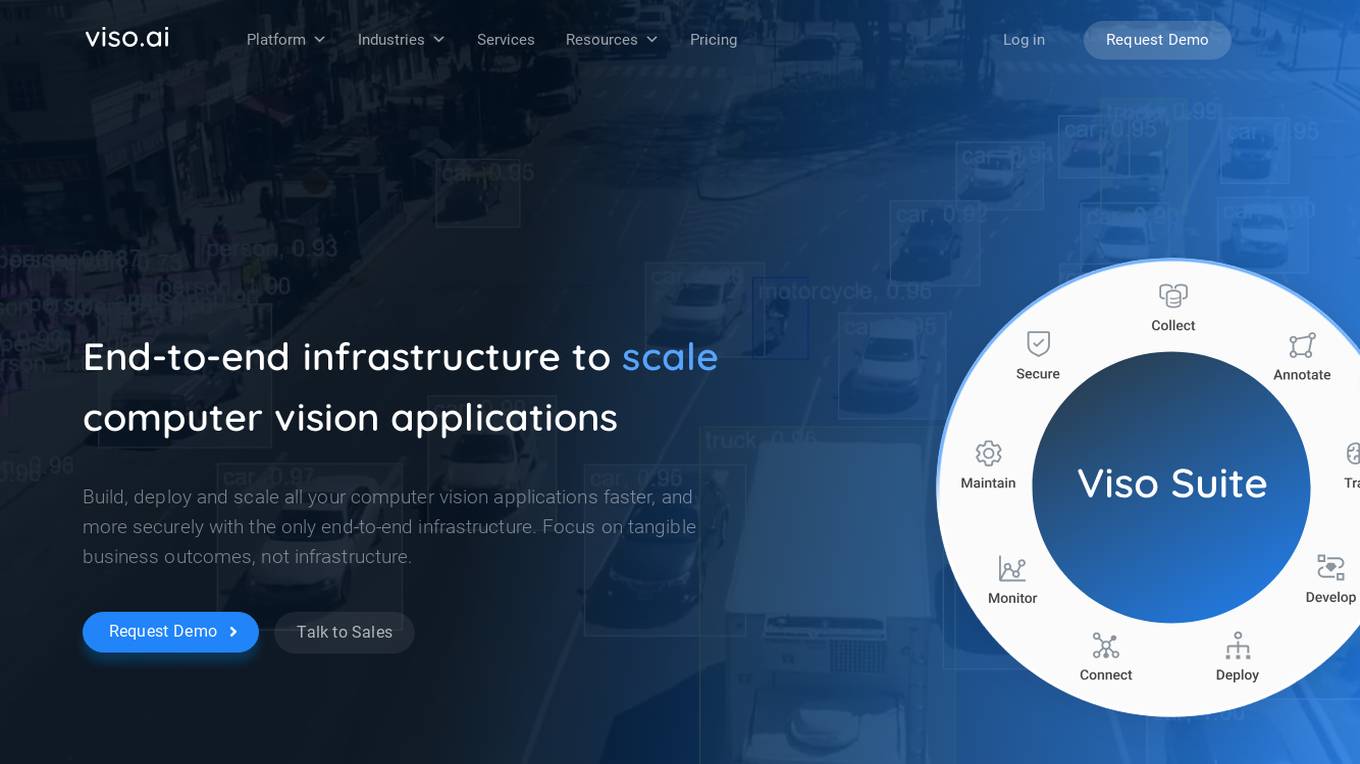
Viso Suite
Viso Suite is a no-code computer vision platform that enables users to build, deploy, and scale computer vision applications. It provides a comprehensive set of tools for data collection, annotation, model training, application development, and deployment. Viso Suite is trusted by leading Fortune Global companies and has been used to develop a wide range of computer vision applications, including object detection, image classification, facial recognition, and anomaly detection.
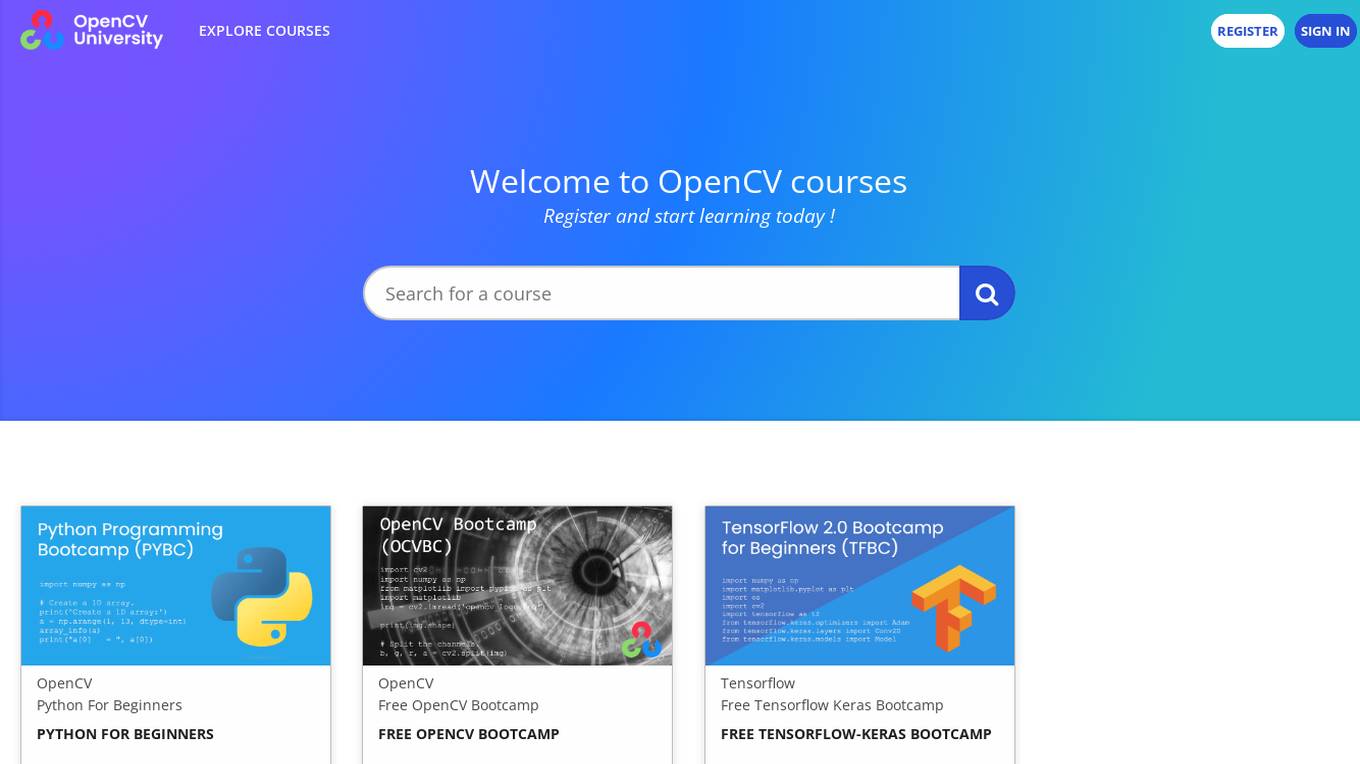
OpenCV
OpenCV is a library of programming functions mainly aimed at real-time computer vision. Originally developed by Intel, it was later supported by Willow Garage and is now maintained by Itseez. OpenCV is cross-platform and free for use under the open-source BSD license.
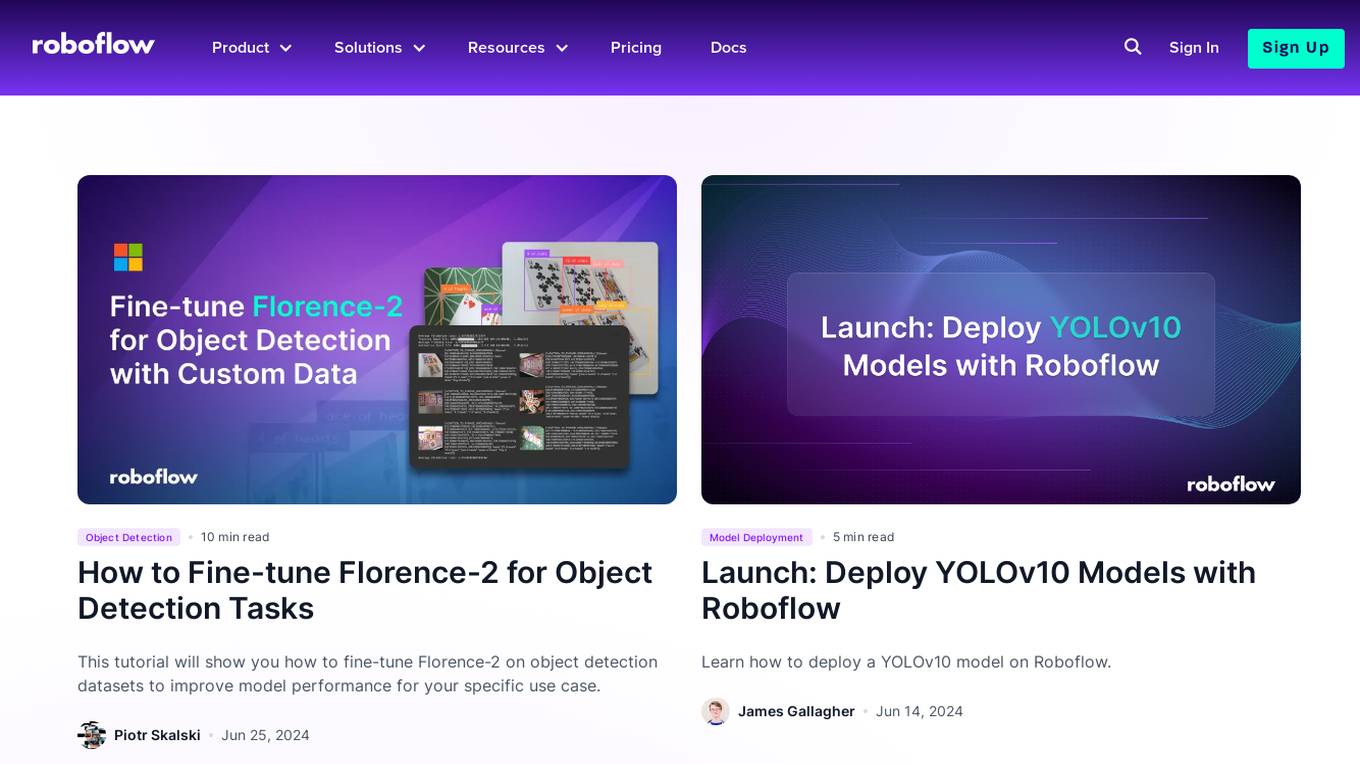
Roboflow
Roboflow is an AI tool designed for computer vision tasks, offering a platform that allows users to annotate, train, deploy, and perform inference on models. It provides integrations, ecosystem support, and features like notebooks, autodistillation, and supervision. Roboflow caters to various industries such as aerospace, agriculture, healthcare, finance, and more, with a focus on simplifying the development and deployment of computer vision models.
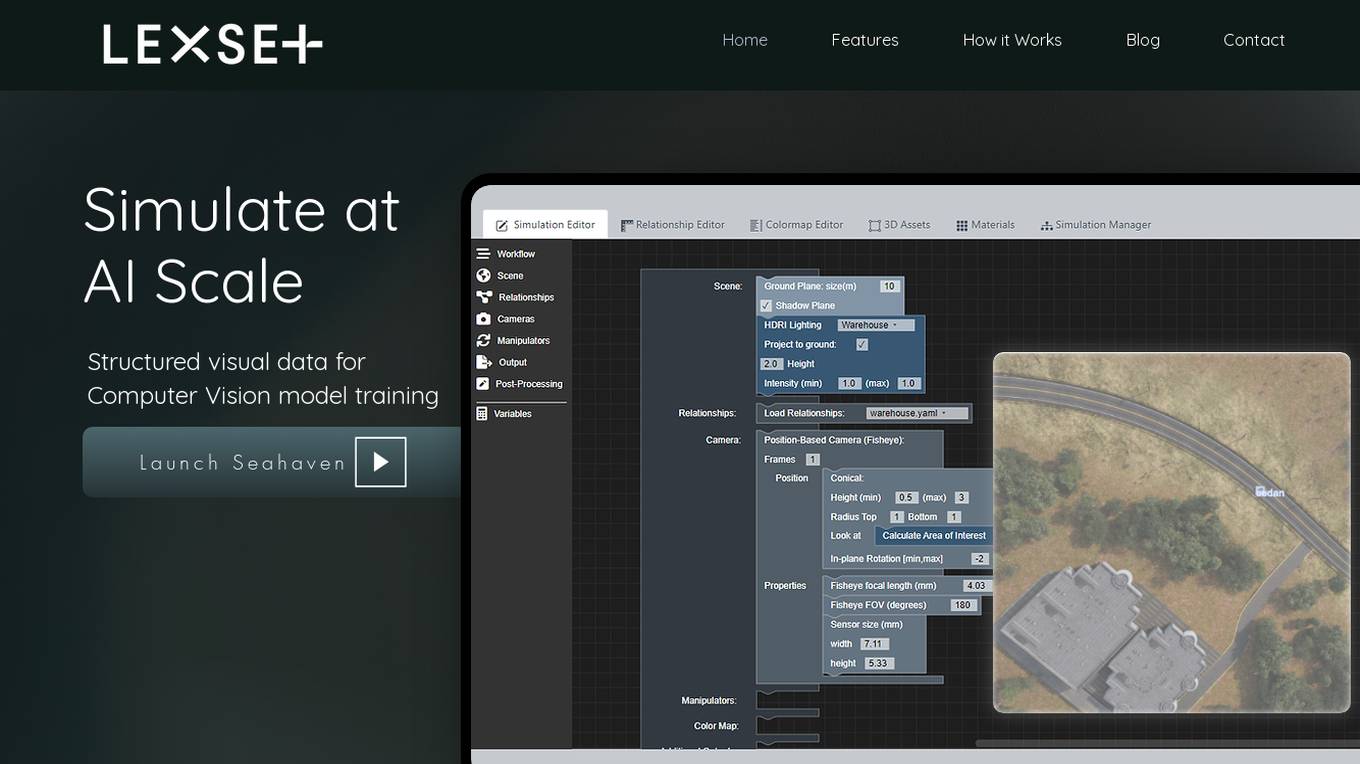
Lexset
Lexset is an AI tool that provides synthetic data generation services for computer vision model training. It offers a no-code interface to create unlimited data with advanced camera controls and lighting options. Users can simulate AI-scale environments, composite objects into images, and create custom 3D scenarios. Lexset also provides access to GPU nodes, dedicated support, and feature development assistance. The tool aims to improve object detection accuracy and optimize generalization on high-quality synthetic data.

Andreas Geiger
Andreas Geiger is a website belonging to the Autonomous Vision Group (AVG) at the University of Tübingen in Germany. The group focuses on developing machine learning models for computer vision, natural language, and robotics with applications in self-driving, VR/AR, and scientific document analysis. The website showcases the research activities, achievements, publications, and projects of the AVG team, led by Prof. Dr.-Ing. Andreas Geiger. It also provides information on the team members, contact details, and links to related resources and platforms.
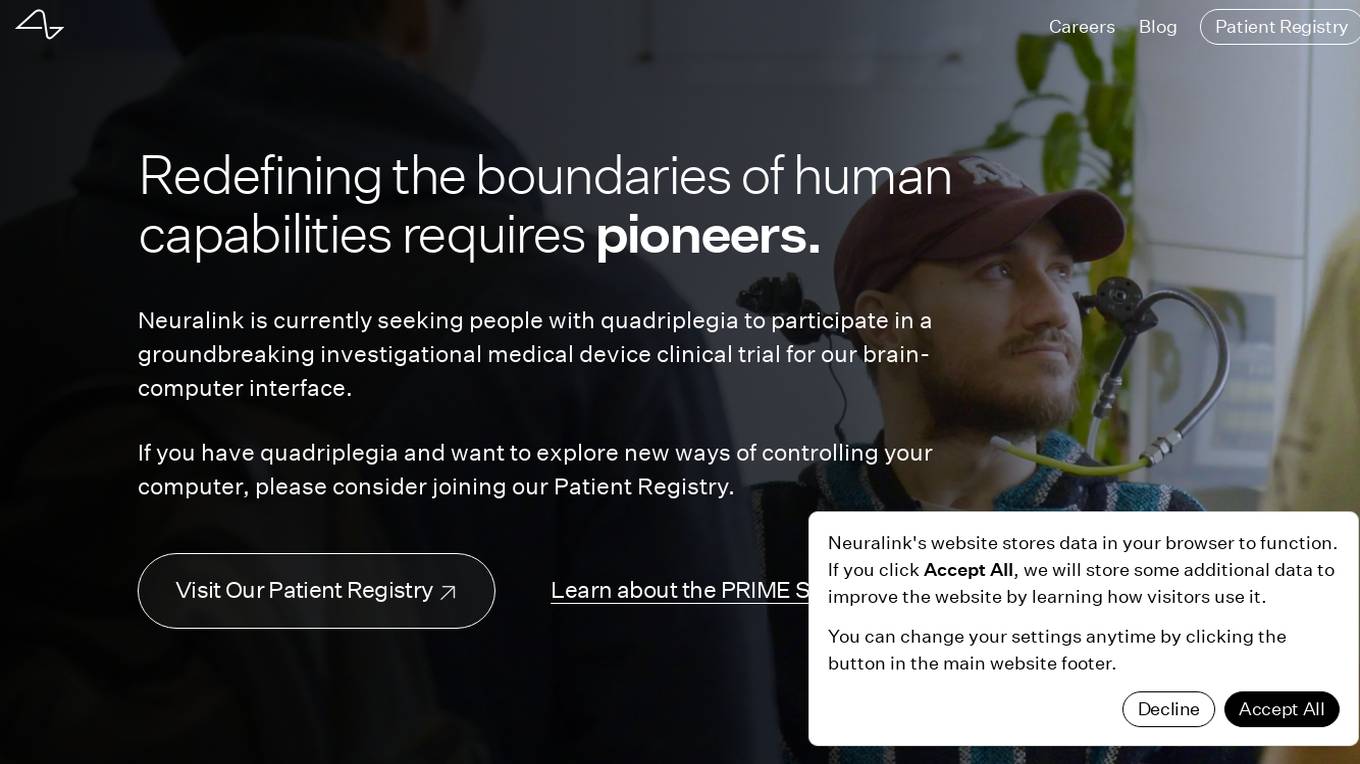
Neuralink
Neuralink is a pioneering brain-computer interface (BCI) application that aims to redefine human capabilities by creating a generalized brain interface to restore autonomy to individuals with unmet medical needs. The application focuses on developing fully implantable BCIs that allow users, particularly those with quadriplegia, to control computers and mobile devices using their thoughts. Neuralink's innovative technology includes advanced chips, biocompatible enclosures, and surgical robots for precise implantation. The application prioritizes safety, accessibility, and reliability in its engineering process, with future goals of restoring vision, motor function, and speech capabilities.
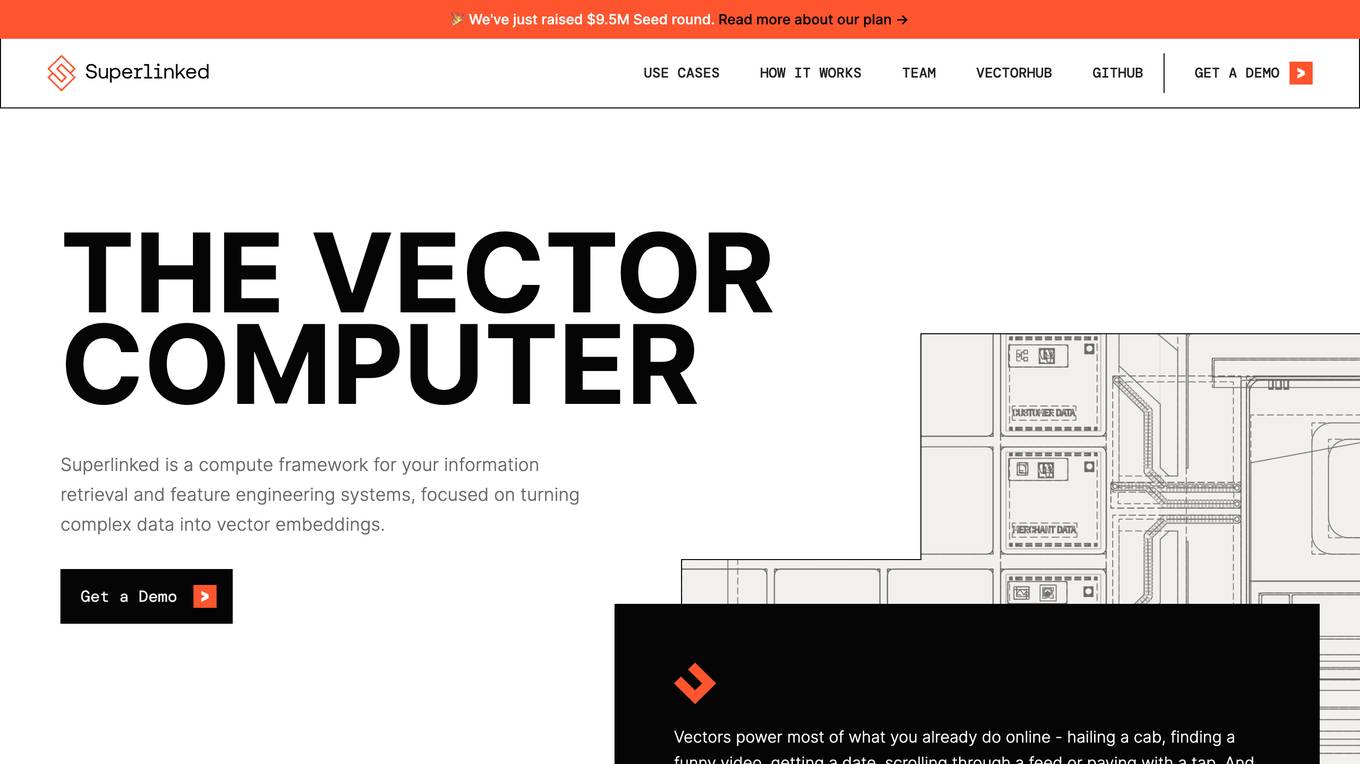
Superlinked
Superlinked is a compute framework for your information retrieval and feature engineering systems, focused on turning complex data into vector embeddings. Vectors power most of what you already do online - hailing a cab, finding a funny video, getting a date, scrolling through a feed or paying with a tap. And yet, building production systems powered by vectors is still too hard! Our goal is to help enterprises put vectors at the center of their data & compute infrastructure, to build smarter and more reliable software.
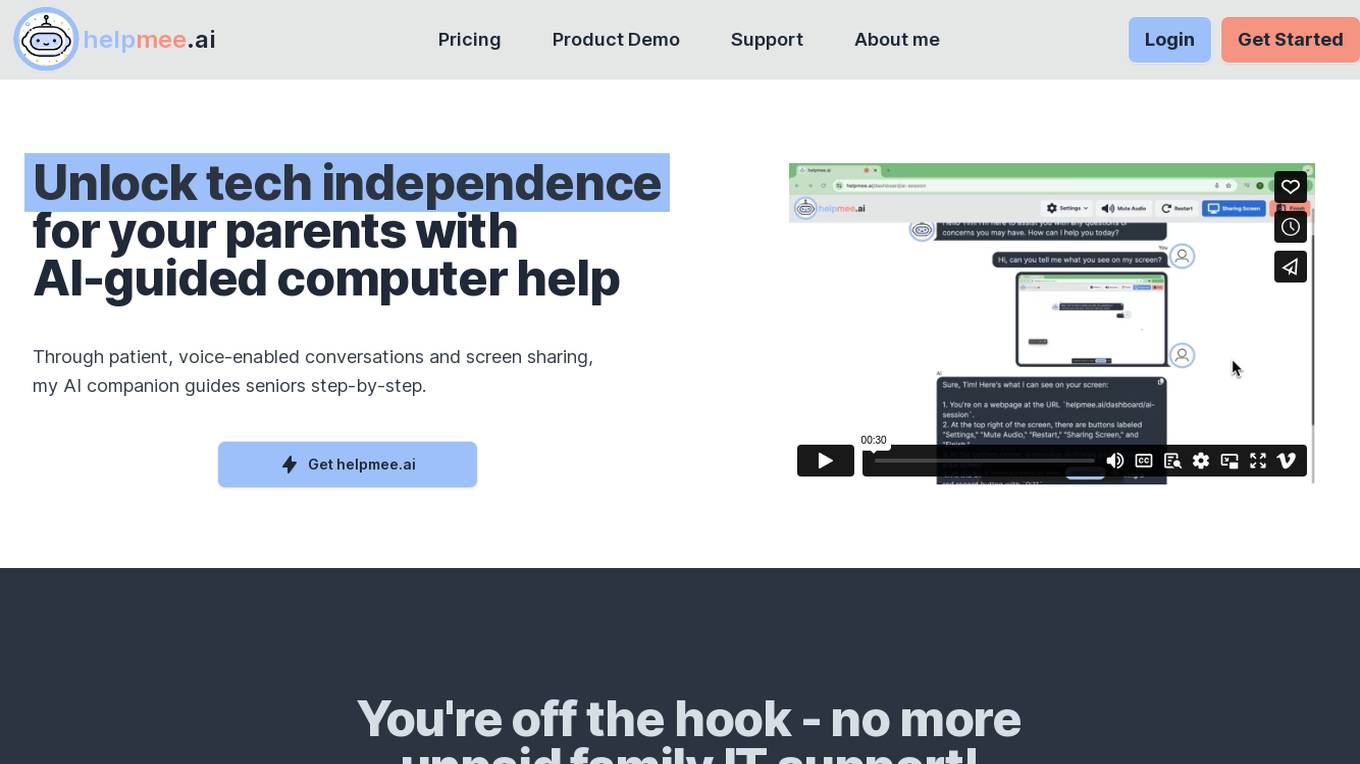
helpmee.ai
helpmee.ai is an AI-guided computer help platform designed to empower seniors and individuals with tech challenges through patient, voice-enabled conversations, screen sharing, and cutting-edge AI vision technology. The platform offers personalized assistance in 50+ languages, 24/7, using OpenAI's latest GPT-4o model to ensure users can navigate the digital world with confidence and independence. With subscription plans tailored to different needs, helpmee.ai aims to provide digital autonomy and minimize family tech support frustrations.

Ultralytics YOLO
Ultralytics YOLO is an advanced real-time object detection and image segmentation model that leverages cutting-edge advancements in deep learning and computer vision. It offers unparalleled performance in terms of speed and accuracy, making it suitable for various applications and easily adaptable to different hardware platforms. The comprehensive Ultralytics Docs provide resources to help users understand and utilize its features and capabilities, catering to both seasoned machine learning practitioners and newcomers to the field.
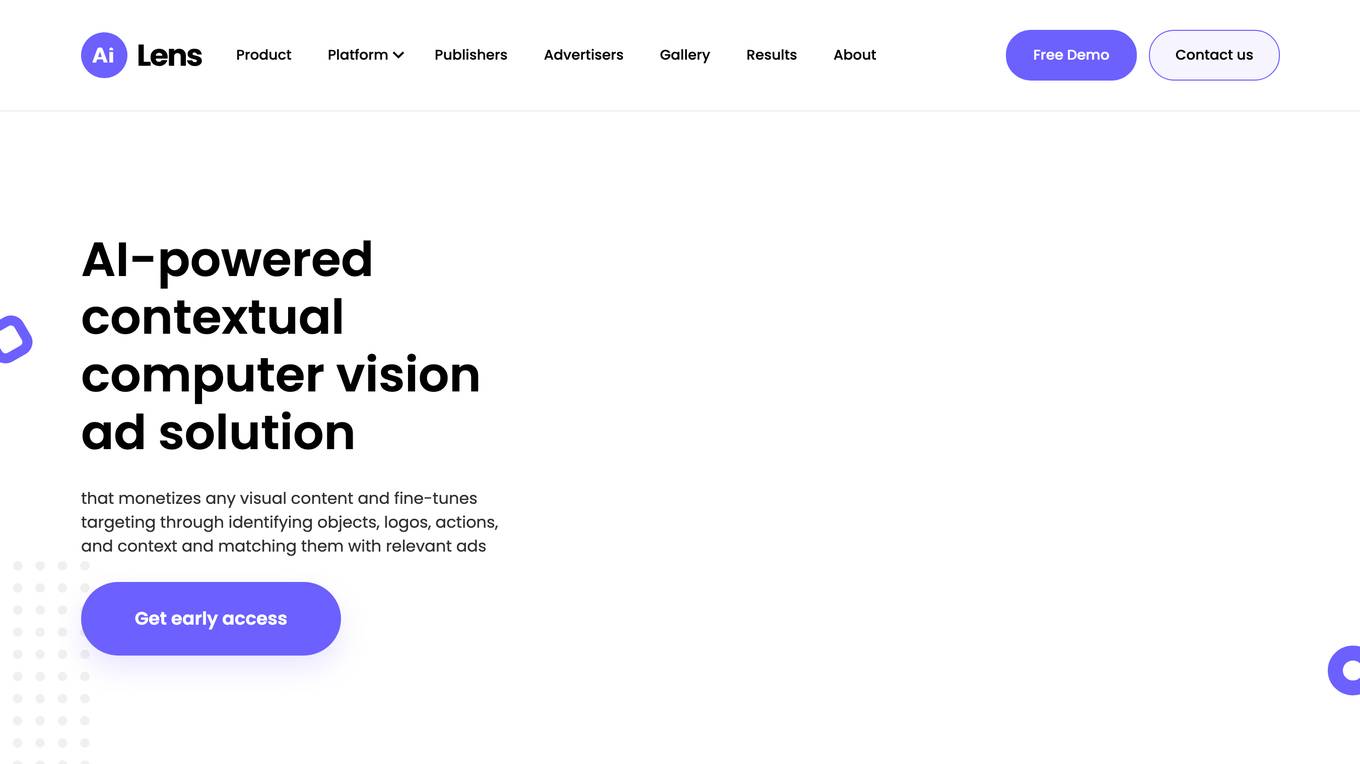
LensAI
LensAI is an AI-powered contextual computer vision ad solution that monetizes any visual content and fine-tunes targeting through identifying objects, logos, actions, and context and matching them with relevant ads.
1 - Open Source Tools
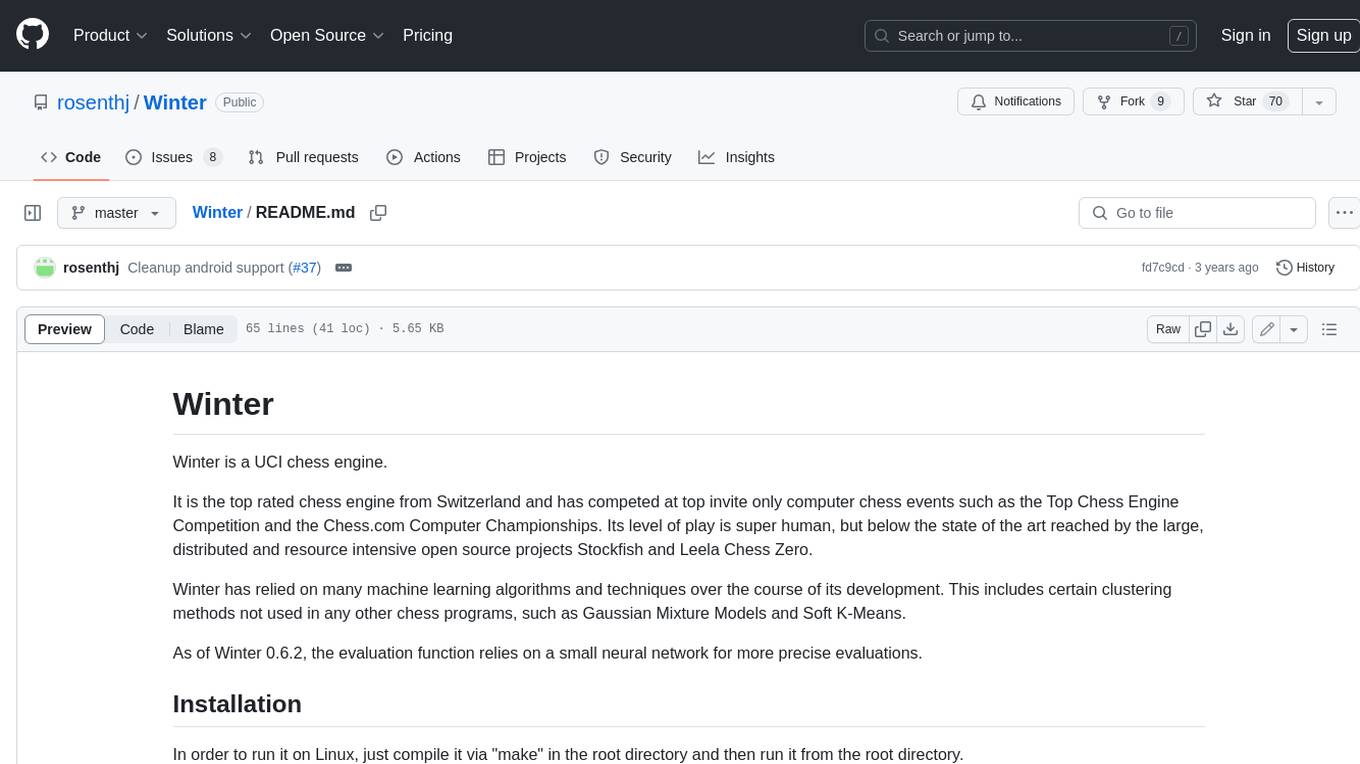
Winter
Winter is a UCI chess engine that has competed at top invite-only computer chess events. It is the top-rated chess engine from Switzerland and has a level of play that is super human but below the state of the art reached by large, distributed, and resource-intensive open-source projects like Stockfish and Leela Chess Zero. Winter has relied on many machine learning algorithms and techniques over the course of its development, including certain clustering methods not used in any other chess programs, such as Gaussian Mixture Models and Soft K-Means. As of Winter 0.6.2, the evaluation function relies on a small neural network for more precise evaluations.
20 - OpenAI Gpts

The Greatest Computer Science Tutor
Get help with handpicked college textbooks. Ask for commands. Learn theory + code simultaneously.
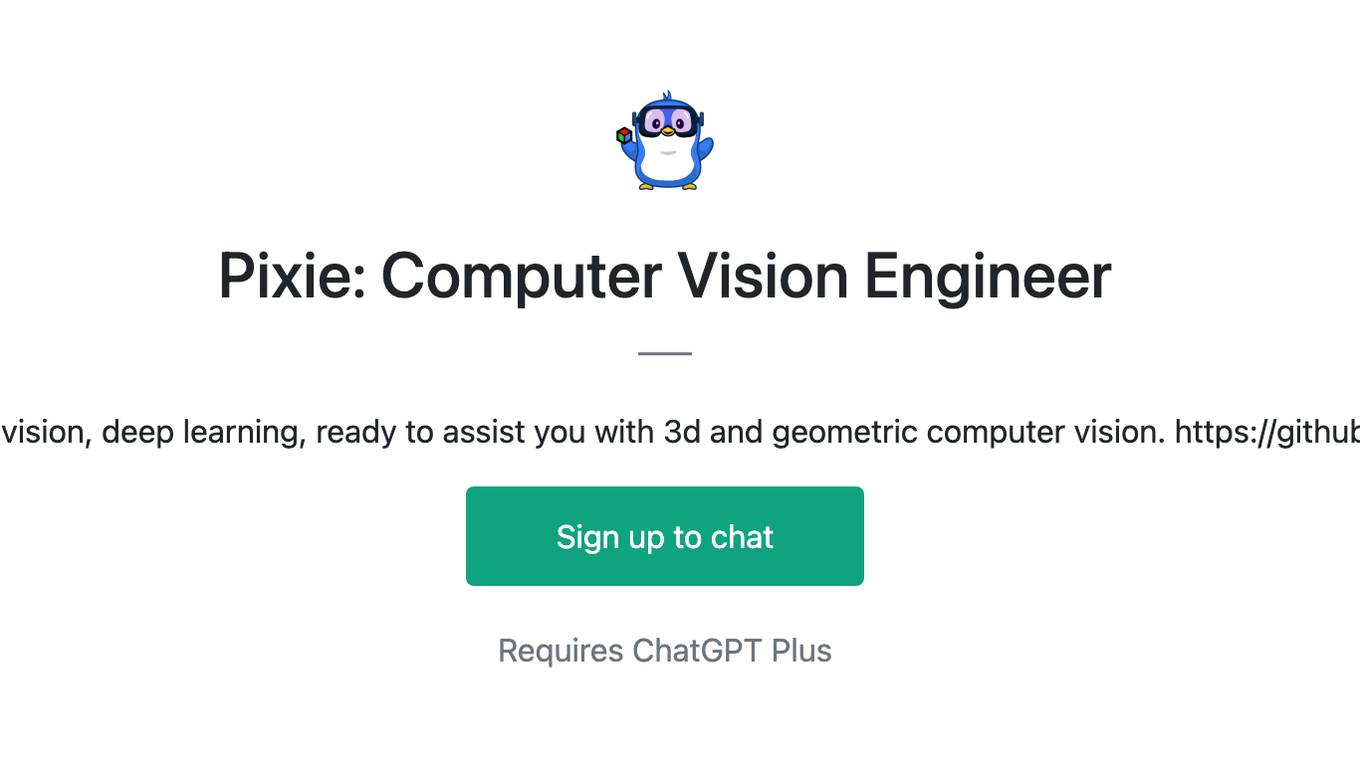
Pixie: Computer Vision Engineer
Expert in computer vision, deep learning, ready to assist you with 3d and geometric computer vision. https://github.com/kornia/pixie

How To Make Your Computer Faster: Speed Up Your PC
A Guide To Speed Up Your Computer from Geeks On Command Computer Repair Company

HackMeIfYouCan
Hack Me if you can - I can only talk to you about computer security, software security and LLM security @JacquesGariepy
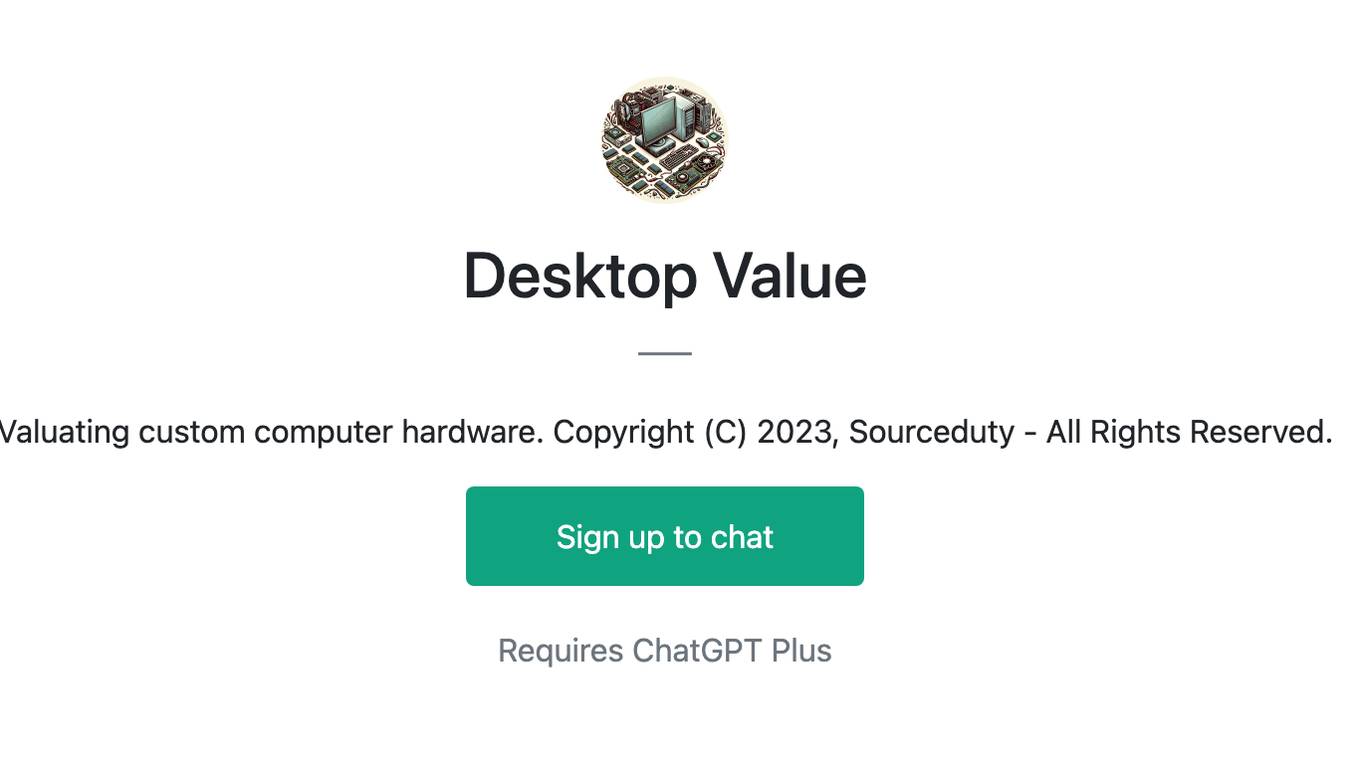
Desktop Value
Valuating custom computer hardware. Copyright (C) 2023, Sourceduty - All Rights Reserved.
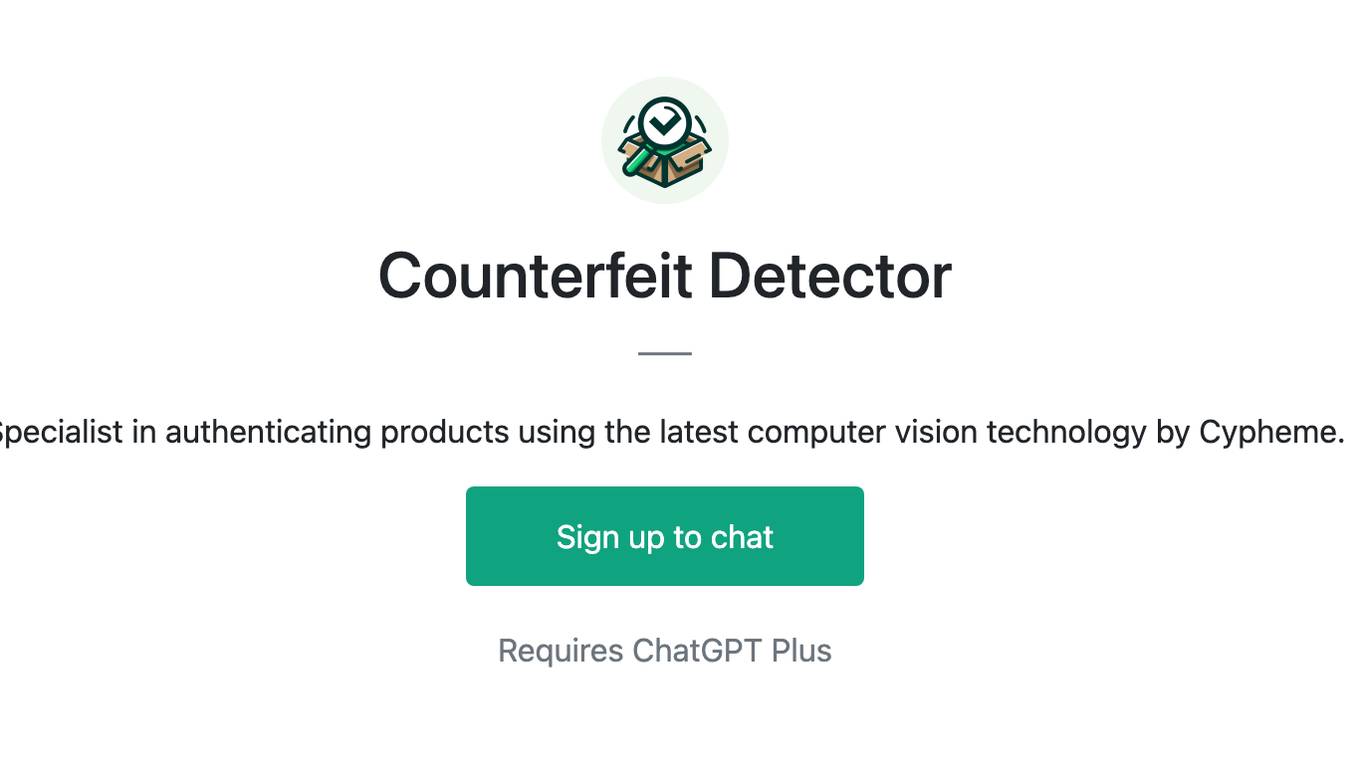
Counterfeit Detector
Specialist in authenticating products using the latest computer vision technology by Cypheme.
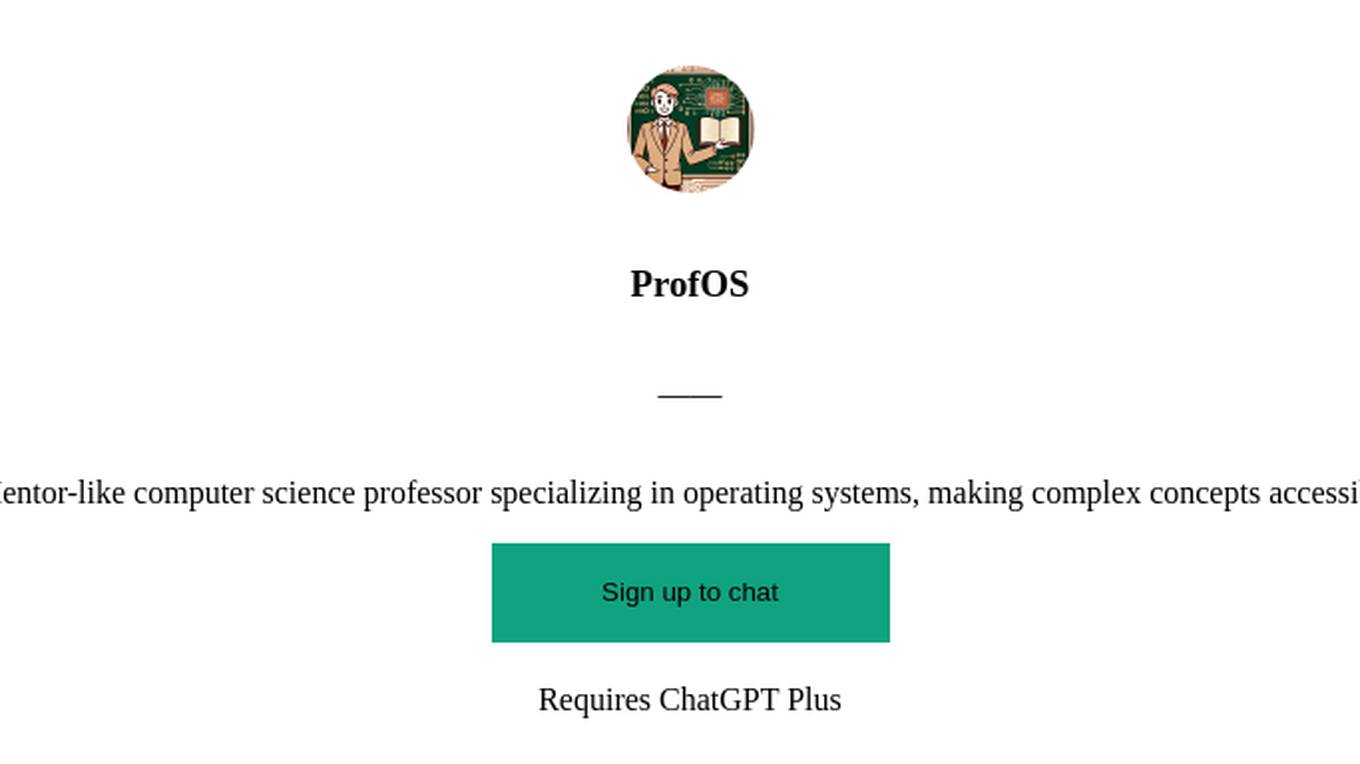
ProfOS
Mentor-like computer science professor specializing in operating systems, making complex concepts accessible.
